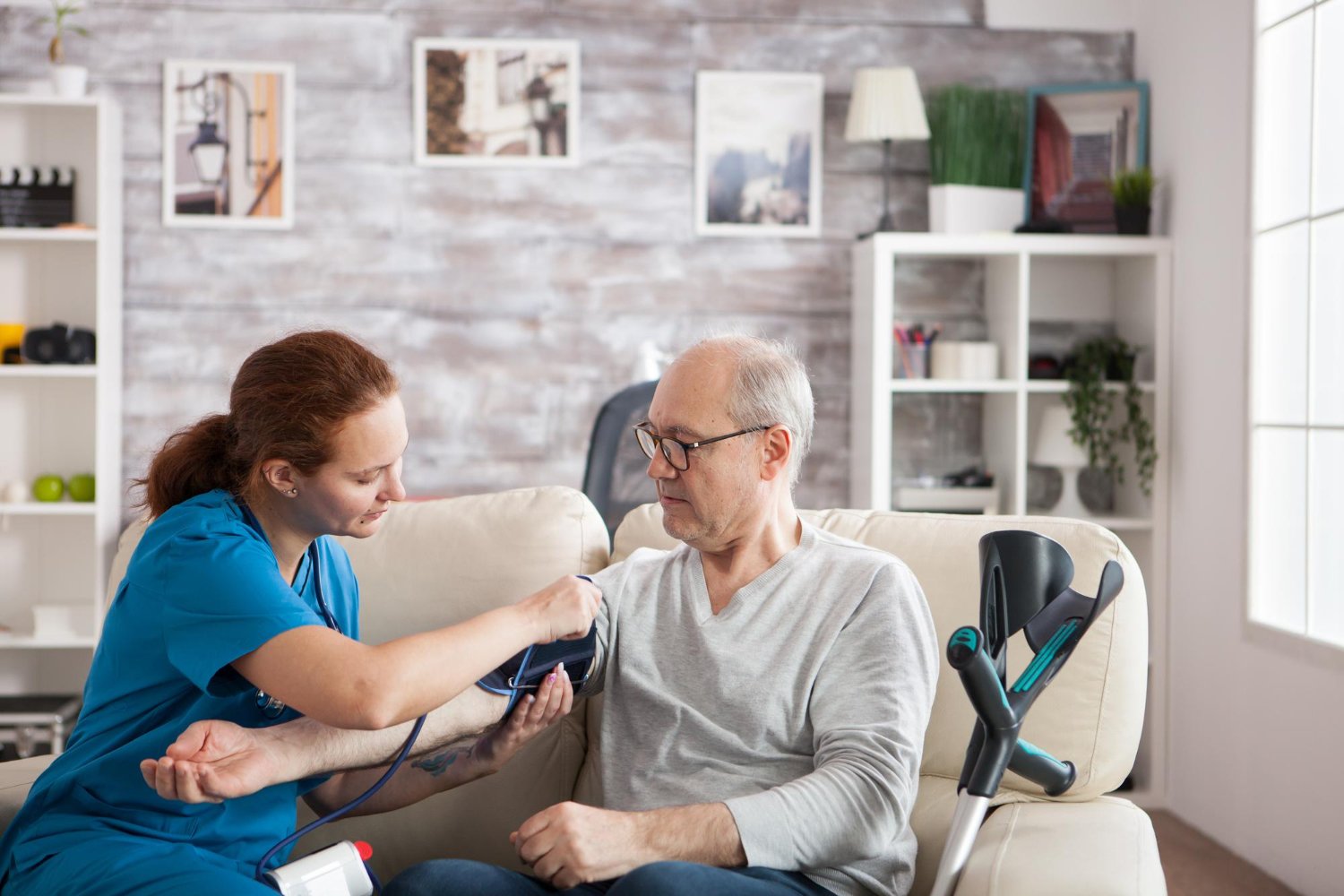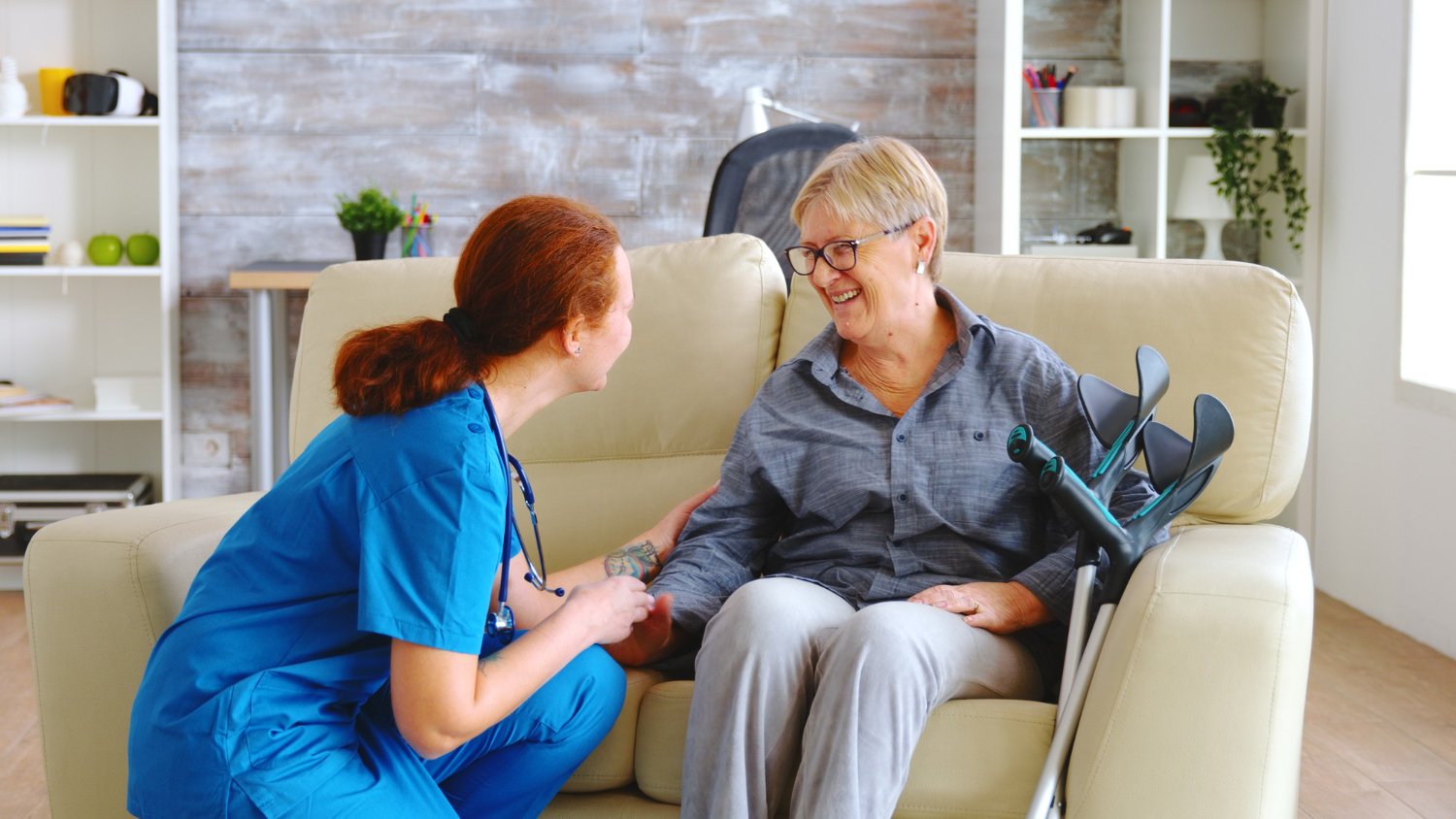If you have an elderly loved one who requires care, it’s important to ensure their comfort and safety by arranging 24 hour care. This level of care provides round-the-clock assistance and support for their daily activities and medical needs. In this article, we will explore what steps you can take to arrange 24-hour care for your elderly loved one, from assessing their needs to finding a reliable caregiver and creating a care plan.
Key Takeaways:
- Assess the specific care needs of the elderly person, considering their health conditions, mobility, and daily activities.
- Research different care options available, such as in-home care, assisted living facilities, or nursing homes.
- If the elderly person requires round-the-clock care, consider opting for 24-hour care.
- Seek recommendations to find a trustworthy and qualified 24-hour carer.
- Work with the carer to develop a tailored care plan for the elderly person, outlining their daily routine, medication schedule, and safety concerns.
- Make necessary modifications to the home to ensure it is safe and accessible.
- Regularly monitor and adjust the care plan to ensure the elderly person’s comfort and well-being.
When an elderly person requires care, it’s crucial to assess their needs and explore different options available. By taking proactive steps to arrange 24 hour care, you can ensure the comfort and safety of your elderly loved one.
What Does A 24 Hour Carer Do?
A 24-hour carer plays a crucial role in providing around-the-clock care and support for elderly individuals. Their responsibilities encompass various aspects of personal care, health monitoring, and ensuring the overall well-being of the person they are caring for.
Responsibilities of a 24-hour carer
- Personal care: A 24-hour carer assists with activities of daily living, such as bathing, dressing, grooming, and toileting. They ensure that the elderly person maintains personal hygiene and feels comfortable in their daily routine.
- Medication management: Monitoring and managing medications is an essential responsibility of a 24-hour carer. They ensure the elderly person takes their medications according to the prescribed schedule, keep track of any changes or side effects, and communicate with healthcare professionals as needed.
- Meal preparation: Nutritious meals are crucial for the health and well-being of elderly individuals. A 24-hour carer takes care of meal planning and preparation, ensuring that the meals are tailored to any dietary restrictions or preferences.
- Mobility support: Elderly individuals may have mobility issues that require assistance. A 24-hour carer provides support with walking, transferring from one place to another, and using mobility aids to ensure the safety and independence of the elderly person.
- Companion and emotional support: Loneliness and isolation can have a negative impact on the mental and emotional well-being of elderly individuals. A 24-hour carer offers companionship and emotional support, engaging in conversations, participating in activities, and providing a comforting presence.
- Housekeeping tasks: Alongside caregiving duties, a 24-hour carer helps with light housekeeping tasks to maintain a clean and organized living environment. This may include laundry, cleaning, and organizing personal belongings.
- Monitoring health: 24-hour carers play a crucial role in monitoring the health of elderly individuals. They regularly check vital signs, monitor symptoms, and report any concerns to healthcare professionals. This proactive approach helps identify and address health issues in a timely manner.
- Safety supervision: Creating a safe environment is paramount for the well-being of elderly individuals. 24-hour carers ensure that the home is free from hazards, implement fall prevention strategies, and assist with any necessary safety modifications.
- Transportation assistance: Getting to medical appointments, social engagements, or necessary outings can be challenging for elderly individuals. A 24-hour carer provides transportation assistance, ensuring that the person they care for can attend important events and maintain a sense of independence.
Why Do People Need 24-Hour Care?
Situations that may require 24-hour care
There are various situations in which individuals may require 24-hour care, ensuring their comfort, safety, and well-being. These circumstances often arise due to advanced age, chronic illnesses, mobility limitations, complex medical needs, safety concerns, and the need for rehabilitation after surgery or illness.
As individuals age, their physical and cognitive abilities may decline, making it necessary to provide additional assistance and supervision. This can involve helping with daily tasks, monitoring their health closely, and offering companionship and emotional support.
People with chronic conditions such as dementia, Alzheimer’s, Parkinson’s, or stroke may require ongoing care and monitoring. These conditions often necessitate assistance with personal care, medication management, meal preparation, and mobility support.
Individuals with limited mobility may need assistance with everyday tasks and may be at a higher risk of falls or accidents. Having 24-hour care ensures their safety and provides the necessary support for maintaining their independence and quality of life.
For individuals with complex medical needs, constant monitoring and care are crucial. This can include tasks such as oxygen therapy administration, wound care, managing chronic pain, and ensuring medication adherence.
People with cognitive impairments or memory loss may require 24-hour care to ensure their safety and prevent wandering or accidents. Having someone available round-the-clock helps to create a secure and supportive environment, minimizing risks and providing peace of mind.
Rehabilitation after surgery or serious illnesses can also necessitate 24-hour care during the recovery period. This ensures that necessary assistance and support are available, helping the individual regain their strength and independence.

| Scenario | Reason for 24-hour care |
|---|---|
| Advanced age | Physical and cognitive decline |
| Chronic illnesses | Ongoing care and monitoring |
| Mobility limitations | Assistance with daily tasks and safety concerns |
| Complex medical needs | Constant monitoring and care |
| Safety concerns | Cognitive impairments and memory loss |
| Rehabilitation | Recovery period after surgery or illness |
Is 24-Hour Care At Home Cheaper Than A Care Home?
When it comes to providing round-the-clock care for your elderly loved one, one question that often arises is whether 24-hour care at home is more cost-effective than a care home. While both options come with expenses, understanding the cost breakdown can help you make an informed decision.
Let’s first consider the cost of care homes. Care homes typically involve significant expenses, including accommodation, meals, and care services. The cost can vary depending on the location, facilities, and level of care required. It’s important to research and compare different care homes to find one that suits both your loved one’s needs and your budget.
On the other hand, opting for 24-hour care at home can still incur expenses but generally allows for more flexibility in terms of services provided. The cost of in-home care can depend on the level of assistance needed and the location. In-home care can be tailored to meet your loved one’s specific needs, providing personalized care in the comfort of their own home.
It’s worth noting that in-home care may be more cost-effective for individuals who only require assistance during certain hours of the day or for specific tasks. This flexibility allows you to pay for the necessary care without incurring additional costs for services that may not be required. However, it’s essential to consider the long-term financial implications of in-home care and potential additional costs, such as modifying the home for safety and accessibility.
Who To Contact When Worried About An Elderly Person
If you have concerns about the well-being of an elderly person, it is important to take action and reach out to the appropriate authorities or organizations. Here are some key contacts you can rely on:
Local authorities: To report elder abuse or seek advice on safeguarding an elderly person, get in touch with your local adult social services or social work department. They have the expertise to address these concerns and provide guidance on necessary steps to ensure the safety and protection of the individual.
Helpline numbers: There are several organizations that operate helpline services specifically dedicated to addressing elder abuse. Action on Elder Abuse and Age UK are just a few examples. These helplines offer valuable guidance, support, and information on available resources that can aid in protecting the well-being of the elderly.
NHS services: If you have immediate medical concerns or emergencies related to the health and well-being of the elderly person, do not hesitate to reach out to the National Health Service (NHS). They are equipped to handle urgent situations and provide appropriate medical care.
GP or healthcare professional: Consulting with the elderly person’s general practitioner or healthcare professional is essential if you suspect physical or mental health issues. They will be able to offer guidance, conduct assessments, and recommend appropriate courses of action to address any concerns raised.
Family or friends: If you suspect an elderly person is being mistreated, neglected, or facing any form of abuse, it is important to reach out to their family or close friends. By sharing your concerns, you can encourage them to take the necessary steps to ensure the safety and well-being of their loved one.







